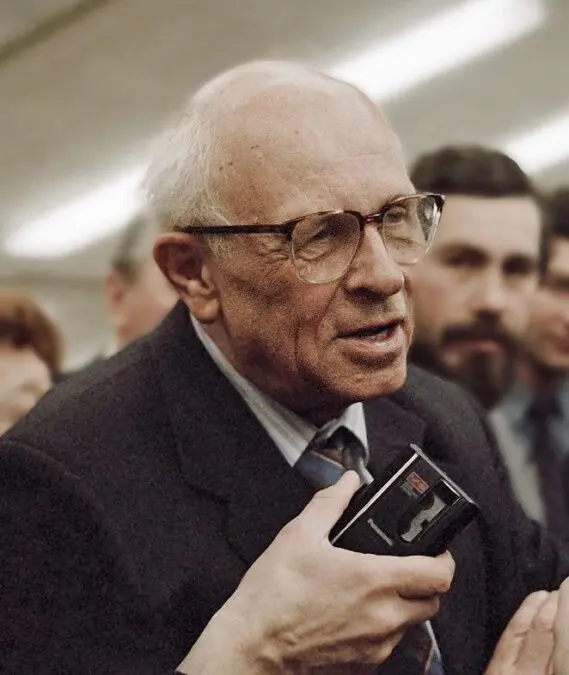He was born 100 years ago and goes down in history as one of the most successful nuclear weapons developers in the history of the world. His project managed to be felt all over the world, quickly managing to equalize in the Cold War. Curious or not, the same inventor received the Nobel Peace Prize. How did one of the creators of nuclear weapons win this award? Let’s get acquainted in more detail with Andrei Dmitrievich Sakharov. His life began in Moscow on May 21, 1921 in the family of a physics professor who would point to science as the only solution for Andrei, his mother was the daughter of General Alexei Sofiano, who would also help shape the young person.
In 1938, Sakharov entered Moscow University, but did not have much time to complete it, the evacuation of Moscow would move him to present-day Turkmenistan, and during the war he would work in a military laboratory, and then return to Moscow to take a doctorate in theoretical physics. His first interests were in the cosmic rays, and although his work showed a good foundation for the development of new theories, the USSR would soon need all the scientists to create an atomic bomb. In this project, Andrew will give a very interesting solution, placing pure and unenriched uranium around the deutirium – isotope, expanding the boundaries of the structure.
During the thermonuclear reaction, uranium can also capture its own neutrons, ensuring higher power and radius of effect. This effect is called the “cake” by himself. At first it became clear that the first tests could not work as expected. Of course, the idea is quite original and with the help of some accelerators and weak radiation rays, Andrei managed to put the nuclear weapon in the hands of the USSR. The first hydrogen bomb codenamed RDS-37 was produced and detonated, with an original power of about 3 megatons, for real tests, the power will be reduced to 50%. Only 6 years later, his model will be used for the well-known “King Bomb” with a capacity of 50 megatons – to this day it remains one of the most powerful atomic bombs in history.
With the demonstration of such power, it is clear that the world will never be the same, and success at some point becomes a special scourge for the creator. The fate of Oppenheimer and Edward Teller is similar in this respect. Many do see the creation of such a weapon as too extreme a measure, but this is where another reasoning emerges. For the inventor himself, it became clear that about 40 years after the creation of such a weapon, World War III was avoided, and probably one great merit is the fact that nuclear terror and constant threats keep each side in open conflict.
In 1965 he began working on theoretical physics and studying proton decay. Such theories have already been proposed, but have not yet been proven. He researched the big bang theory and then even suggested the presence of so-called induced gravity, a proposal that first appeared from Einstein and Bose.
In the 1950s, the scientist would express serious concerns about the detonation of a nuclear weapon in the atmosphere. In 1967, he will be one of the people who will try to reason with the United States and the Soviet Union about the creation of long-range ballistic missiles, which are likely to be developed, accompanied by the possible creation of defenses against such missiles. In general, the scientist’s idea is to show that if this armament continues, nuclear war will become the only option.
He finally wrote his own manifesto, and although he had permission to publish it, he never managed to find a place to express himself in the USSR. On the other hand, we must not forget that it has been a huge success outside the country. But why is Sakharov such an ardent opponent? As you know, the Rainbow anti-radar system malfunctions at one point, leaving only one person to decide whether they really need to notify their superiors of the first phase of nuclear war or simply accept that this is a particular system error. It is during this period that one person saves the whole world, and what can we imagine if there were more than one radar. After Andrei’s literary appearance, he received an official forgetfulness to work in the military industry, to conduct various experiments or to work as a theoretical physicist.







